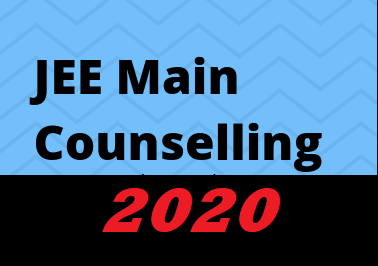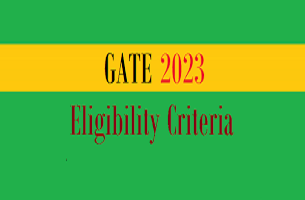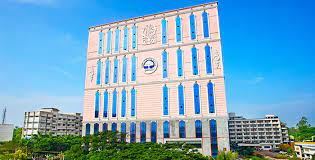Keeping in mind the present scenario of education system in India, JEE Main is one of the most important examinations. It is one of those exams for which lakhs of teenagers across India toil day and night for two years in order to get into the prestigious IITs, IIITs and NITs. But due to very limited number of seats, only the top performers get in.
After the main examination is over, the next most important time is the counselling procedure- which can very well decide a candidate’s future as well!
Our HRD Ministry (Human Resource Development ministry) has given the responsibility of JEE Main counselling to JoSAA (Joint Seat Allocation Authority) .It is their duty to synchronize and manage the seat allocation and counselling procedure of all the candidates who have qualified JEE Main. The seats of these candidates are allocated by JoSAA for admission to 107 institutions across the country.
These include the 23 IITs, 31 NITs, 25 IIITs and 28 Other-Government Funded Technical Institutes (other-GFTIs). The academic programs offered by these 107 institutions are open for admission. A student can get admission into one of these depending upon their JEE rank and the number of seats available.
 Direct Admission In VIT University
Direct Admission In VIT University
 Direct Admission In SRM University
Direct Admission In SRM University
JoSAA JEE Main Counselling 2020
A student’s JEE rank is the key deciding factor in ultimately determining in which institution, and under what academic program they will get in. Depending on their rank, students get to choose between academic programs, finally they get into one of their choice. The better the rank , the more choices you get to have.
Only candidates who have qualified JEE Main are eligible to sit for the counselling procedure. Every year, the JEE Main cut-off is different. In order to qualify, students need to secure a JEE score more than or at least equal to the cut-off.
Read More : Tips and strategies to prepare for JEE Main Exam
This year the further postponement and delay of JEE Main coming session to September 1-6,2020 will result in delay of after processes like counselling and admissions, due to obvious reasons. The JEE Main Counselling and seat allotment will start expectedly in the third week of September 2020.
The counselling process shall be conducted in the online mode. There happen to be 3 counselling processes in JEE Main – JoSAA, CSAB NEUT, and CSAB SFTI.
Given below are a few details regarding each counselling procedure:
▪JoSAA is the combined counselling for JEE Main and JEE Advanced qualified candidates.
▪CSAB NEUT is conducted for supernumerary seats in the North East and Union Territories.
▪CSAB SFTI is a separate counselling method conducted by Central Seat Allocation Board for 18 SFTIs.
▪The participating institutions are 23 IITs, 31 NITs, 25 IIITs and 27 other Government Funded Technical Institutes (other GFTIs). Check JEE Main cut-off for NITs by following the given link:
JEE Main counselling procedure in details (as per JoSAA official website):
JoSAA is responsible for allotting seats to 106 participating institutes, which include the IITs, NITs, IIITs and other GFTIs. Candidates who qualify JEE Main but are unable to perform in JEE Advanced are still eligible for seats in colleges like NITs, IIITs and GFTIs.
- Registration:
All candidates who have appeared in JEE (Main) 2019 are eligible to register for seat allocation in NIT+ system (except IITs).
All candidates who have declared qualified in JEE (Advanced) 2019 are eligible to register for seat allocation in all participating Institutes.
If not registered within the specified date, a candidate may lose his/her candidature, and will not be able to take admission in the on-going academic year.
- Filling-in of choices: Candidates may fill-in their choices of Institutes and branches in decreasing order of their preference. Candidates are strongly urged to fill-in as many choices of their interest as possible.
If choices aren’t filled within the specified date and time, the window will be closed, and students will not be able to take admission in that academic year.
- Locking of choices: Candidates MUST “lock” their choices. For candidates who do NOT lock their choices, their last saved choices will be locked automatically when the time-window for filling-in of choices closes.
Once locked, choices CANNOT be modified.
- Number of rounds of seat allocation: JoSAA will conduct seven rounds that is 1st through 7th rounds of seat allocation for academic programs offered by Institutes under JoSAA 2019. Allocation of seats will be done on the basis of an aplicant’s rank, category, availability of seats, and other factors.
- Seat acceptance: Candidates allotted a seat must pay the seat acceptance fee (through SBI e-Challan/SBI NetBanking/SBI debit cards) and get the documents verified at any reporting center (josaa.nic.in) for provisional seat acceptance .
- Participation in subsequent rounds: A candidate is required to fill option for ‘freeze’, ‘slide’ or ‘float’ the choice of academic program.
- Dual Reporting: If in a subsequent round, a candidate’s allotment from NIT+ system changes to an IIT, the candidate MUST report ONCE AGAIN at an IIT reporting centre, similarly if a candidate’s allotment from IIT changes to an NIT+ system, the candidate MUST report ONCE AGAIN at any NIT+ reporting centre, failure to do so will result in forfeiture of seats allocated in both NIT+ system and IIT.
- Withdraw option: A candidate, who has already accepted a seat, can withdraw the seat by reporting at a reporting center up to sixth round of seat allocation.
Hope this article helped. Thank You!












